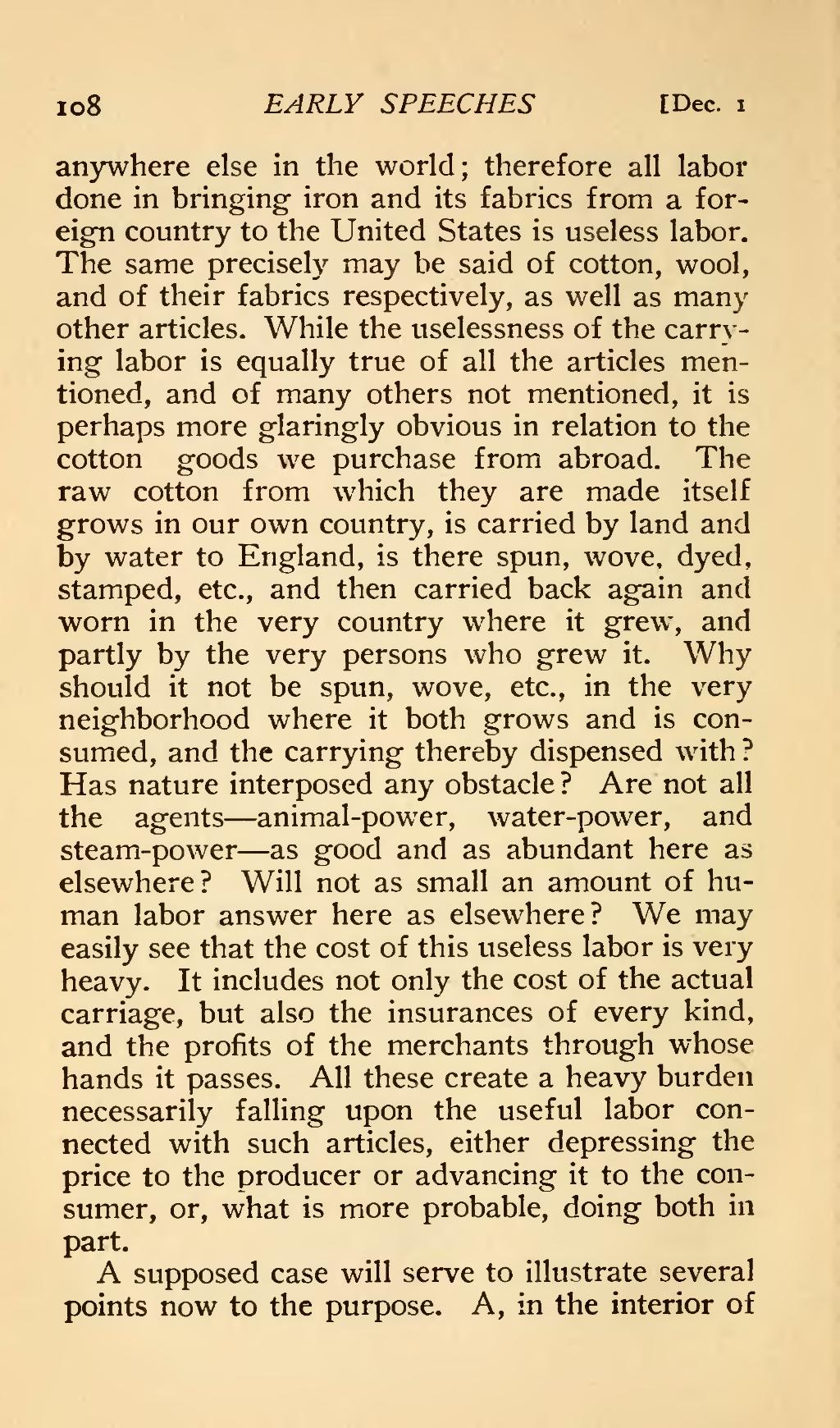anywhere else in the world; therefore all labor done in bringing iron and its fabrics from a foreign country to the United States is useless labor. The same precisely may be said of cotton, wool, and of their fabrics respectively, as well as many other articles. While the uselessness of the carrying labor is equally true of all the articles mentioned, and of many others not mentioned, it is perhaps more glaringly obvious in relation to the cotton goods we purchase from abroad. The raw cotton from which they are made itself grows in our own country, is carried by land and by water to England, is there spun, wove, dyed, stamped, etc., and then carried back again and worn in the very country where it grew, and partly by the very persons who grew it. Why should it not be spun, wove, etc., in the very neighborhood where it both grows and is consumed, and the carrying thereby dispensed with? Has nature interposed any obstacle? Are not all the agents—animal-power, water-power, and steam-power—as good and as abundant here as elsewhere? Will not as small an amount of human labor answer here as elsewhere? We may easily see that the cost of this useless labor is very heavy. It includes not only the cost of the actual carriage, but also the insurances of every kind, and the profits of the merchants through whose hands it passes. All these create a heavy burden necessarily falling upon the useful labor connected with such articles, either depressing the price to the producer or advancing it to the consumer, or, what is more probable, doing both in part.
A supposed case will serve to illustrate several points now to the purpose. A, in the interior of

